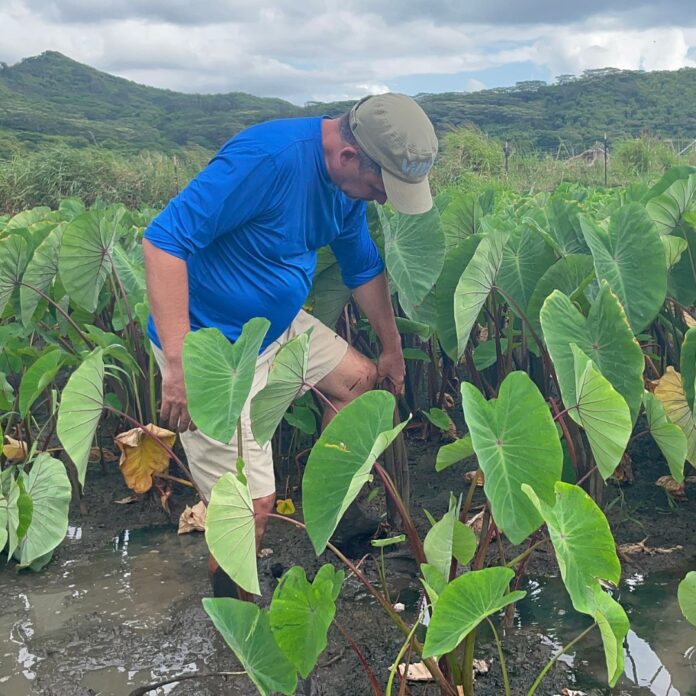Having volunteered at many amazing locations, being a Kākoʻo ʻŌiwi volunteer is definitely a nice change from pulling weeds and taking out tree stumps; however, this is no light job and was rewarding to see the progress we made in the end. This is for sure a top pick for those who want to do something different from the usual volunteer work days.
This volunteer opportunity also made my list of The Best Places To Volunteer On Oahu, go check out the other top picks.
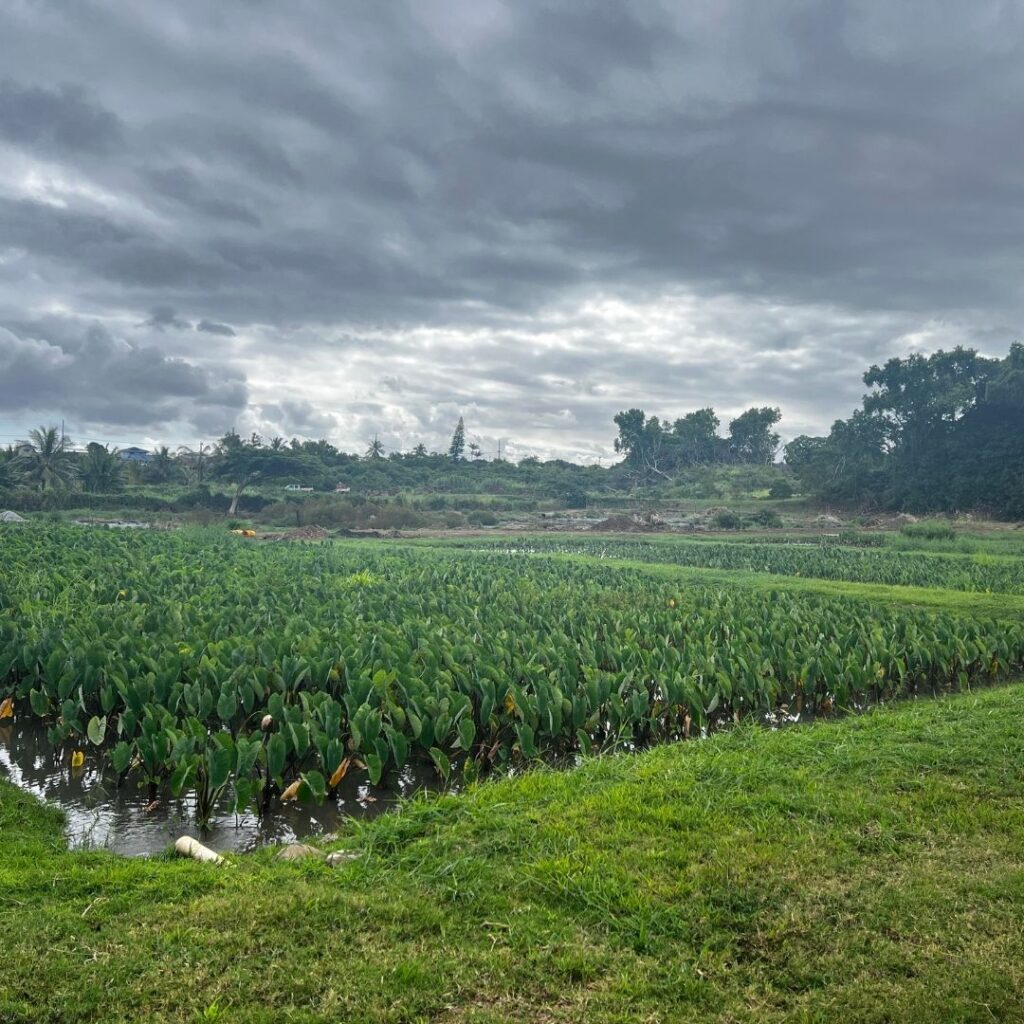
Kākoʻo ʻŌiwi Volunteer Information
Located in the ahupuaʻa of Heʻeia, Kākoʻo ʻŌiwi is a non-profit organization dedicated to restoring their chunk of land and educating the public about how they can do their part in making sure Hawaii doesn’t turn into something it shouldn’t be.
With just over 400 acres of land, Kākoʻo ʻŌiwi grows a plethora of native plants such as Kalo and ‘Ulu (Breadfruit) and sells them to the community.
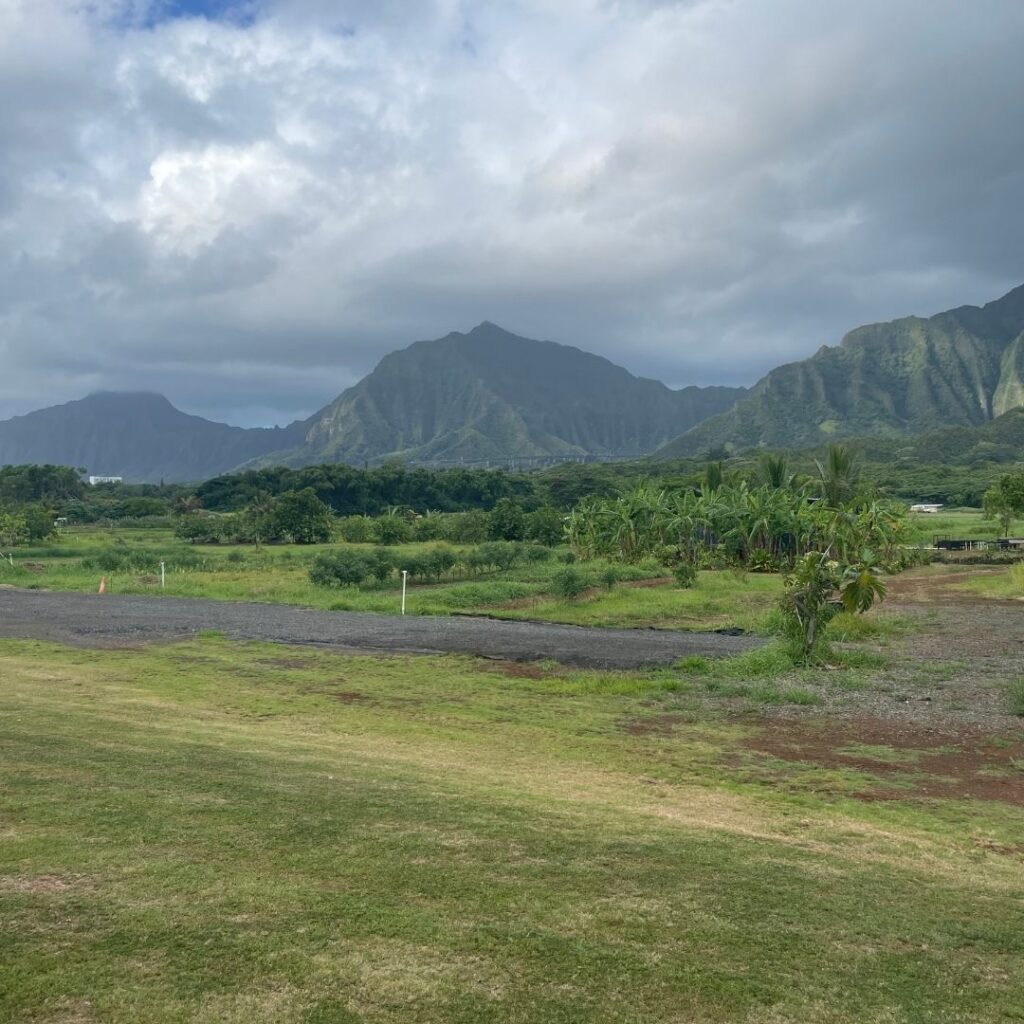
Not only do they host volunteer events every week, but they also host community work days where people of all ages can come together and do their part to help Kākoʻo ʻŌiwi.
How To Reserve A Volunteer Slot
Signing up for this workday is very easy and straightforward, simply go to their RSVP site at SignUpGenius.com and take some time to read about their program.
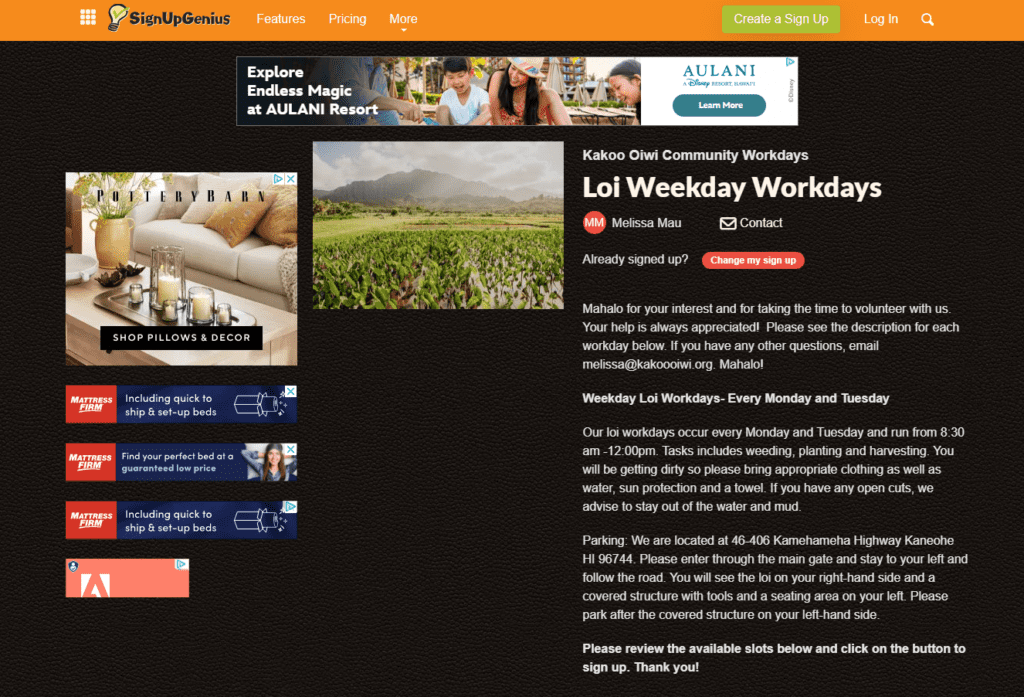
After you’ve done so, proceed by scrolling down to the near bottom of the site where the calendar is located. This is where you can pick events based on dates and times. Once you’ve decided on an event, simply click the ‘Sign Up’ button in red and then click ‘Save & Continue’
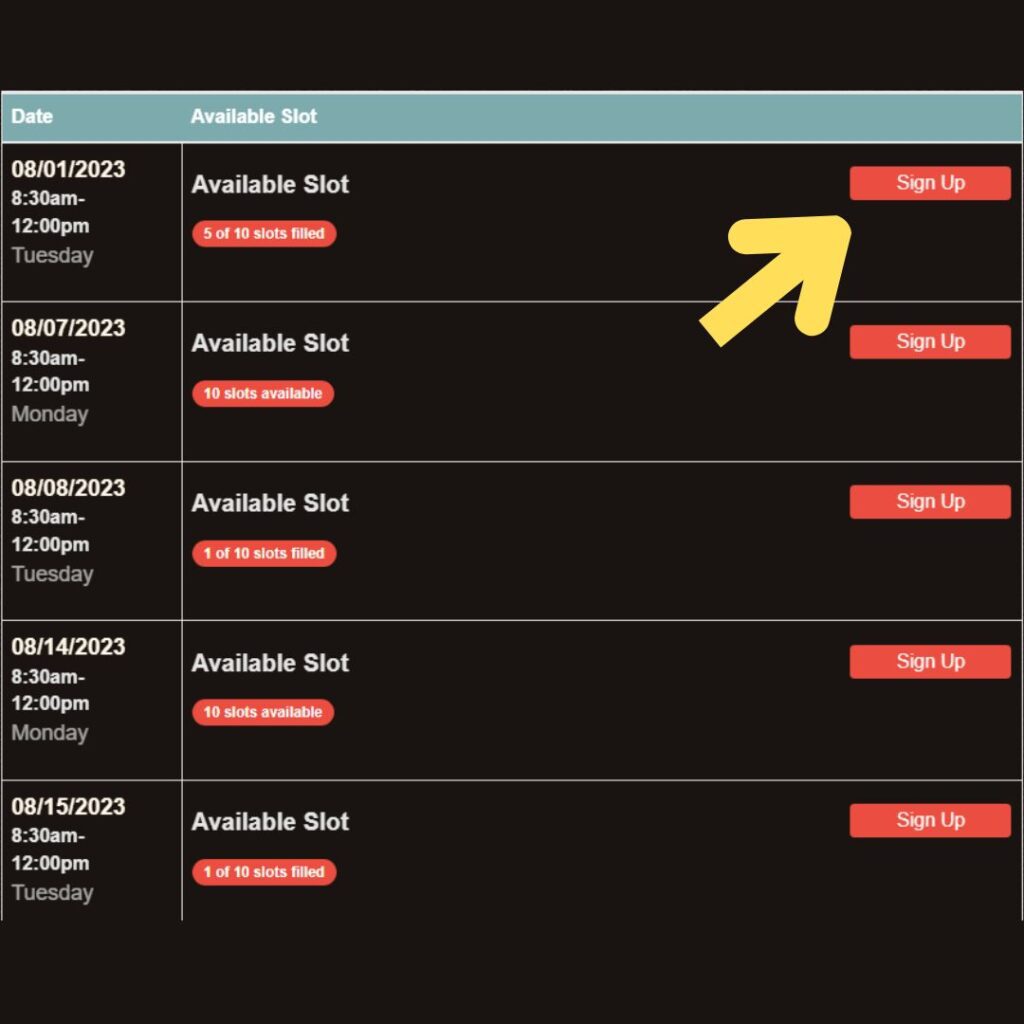
The final step in signing up is simply filling out your name, email, and number of people coming to the event.
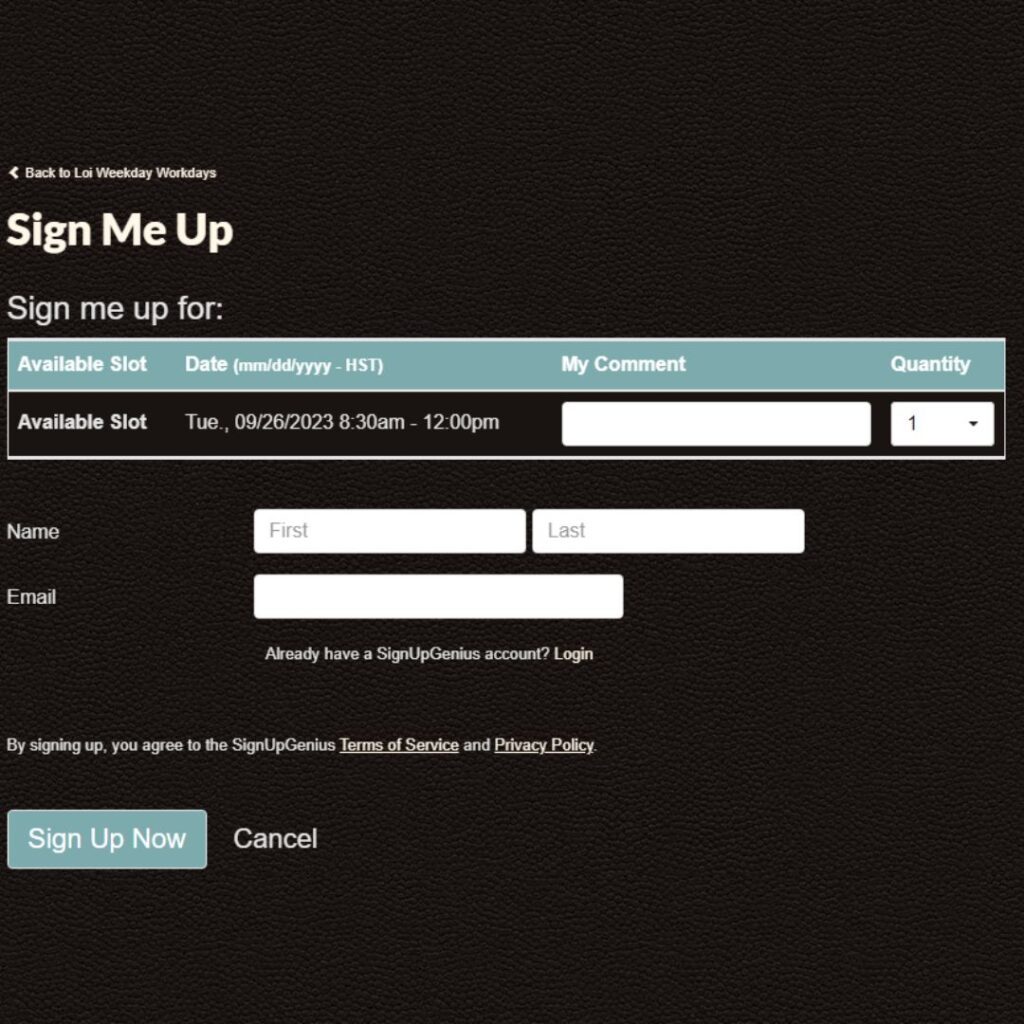
If everything goes well, you should receive a confirmation email right after. Once you get it, you’re all set to go.
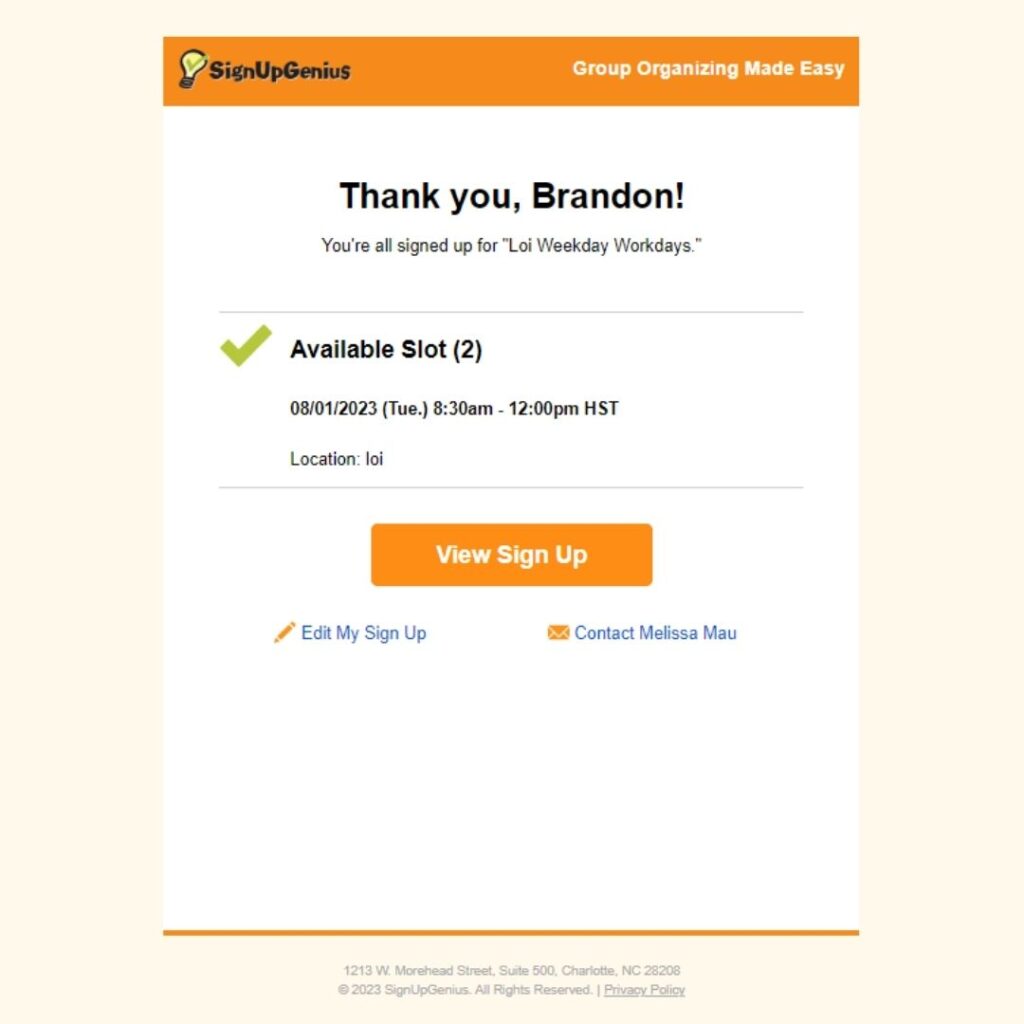
How To Get To The Volunteer Site
Getting to this particular site can be confusing, there are 2 main locations at Kākoʻo ʻŌiwi: wetland restoration, and the lo’i. If you accidentally go to the wetland section, which I did, simply ask the friendly staff there and they will point you in the right direction.
You’ll know that you’re in the right spot if you find yourself in a gravel parking lot next to a long building with a white roof.
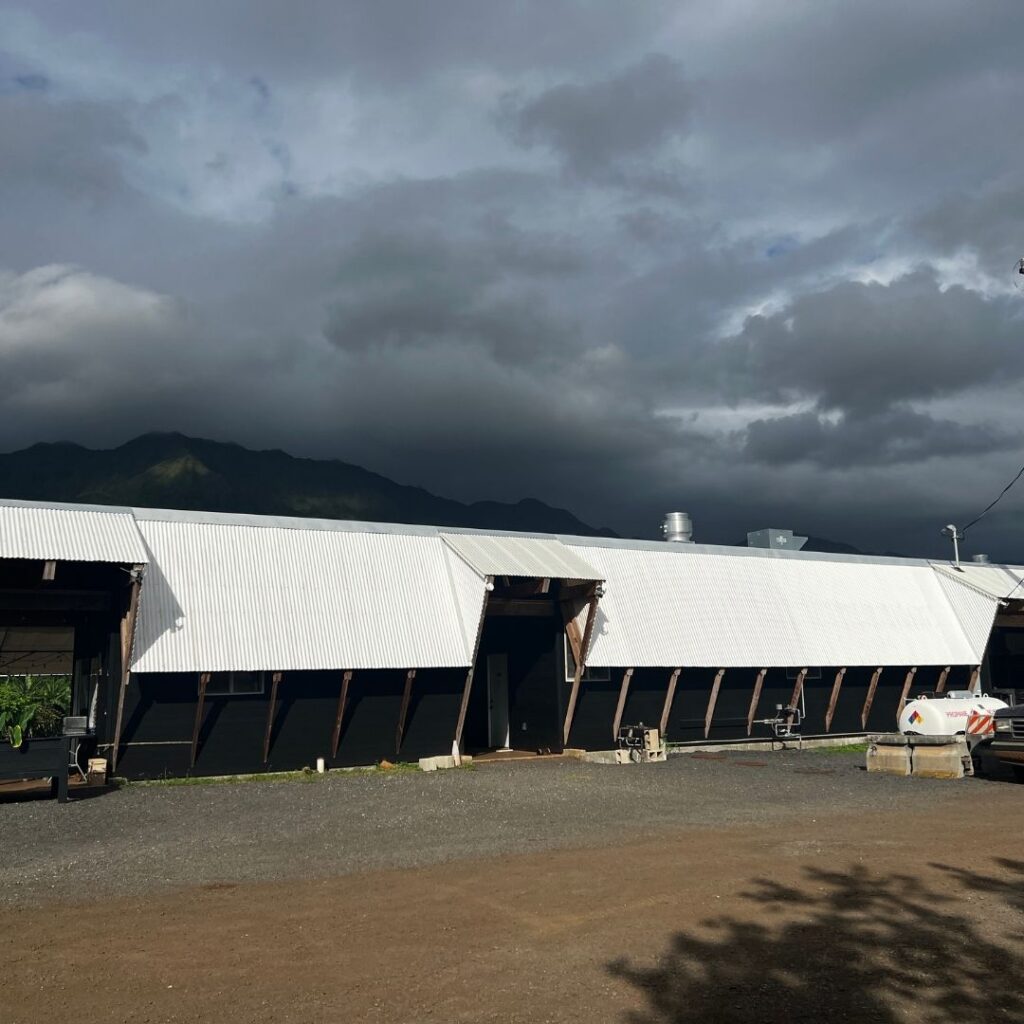
If you arrive early like I did, feel free to just hang out in the seating area in the building, or look around at the beauty of this location. Once everyone arrives, you will drive up to the Lo’i and begin working.
What Can You Expect
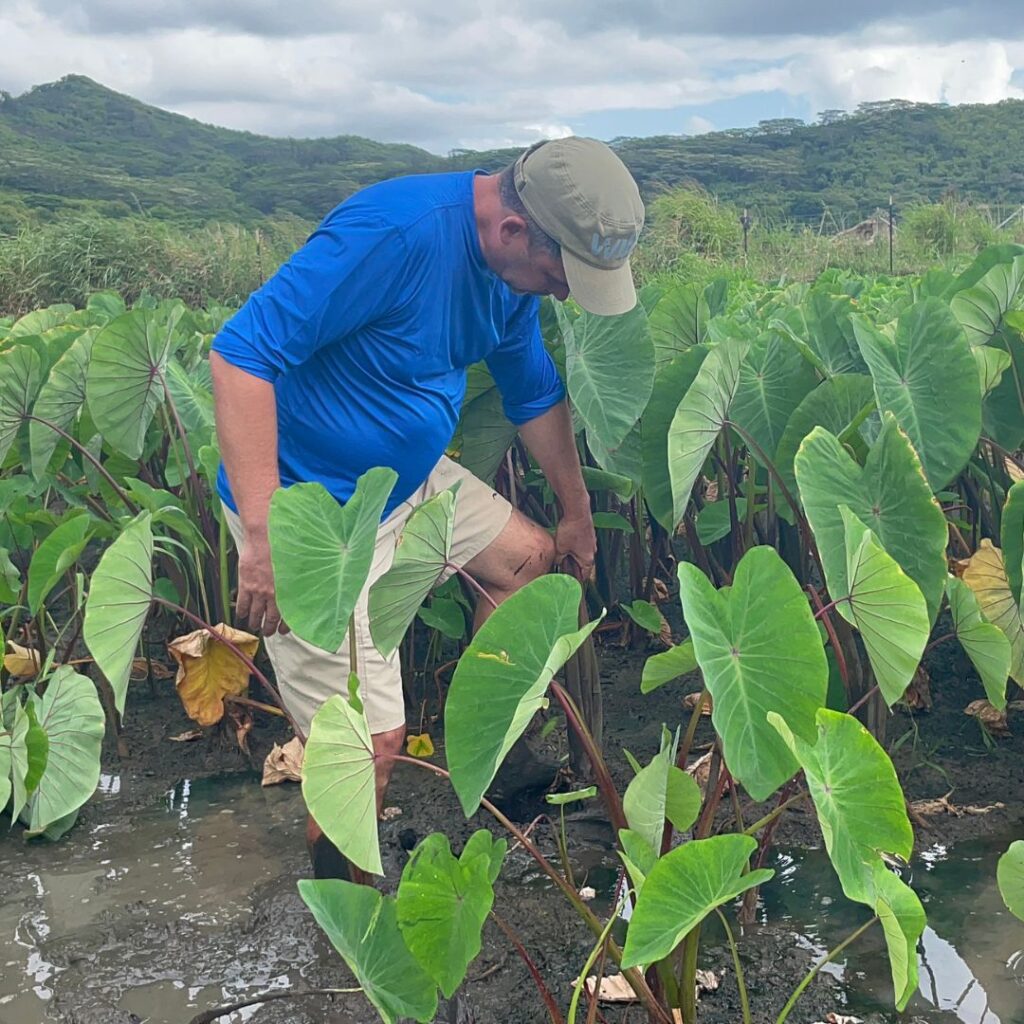
Taking part in a Loʻi Workday at Kākoʻo ʻŌiwi is an exciting opportunity for families who are eager to make a meaningful contribution. Everyone is invited, but keep in mind that kids will need to be ready to work diligently, and will get pretty muddy.
Before you dive in, it’s important to come prepared. It’s advised to bring slippers for after you’re done working and don’t forget your sunscreen to protect against the sun’s rays. Also, carrying a water bottle is key for staying hydrated during hard work.
While the Lo’i is fun and exciting, it is not sterile and if the mud gets in a cut, it will increase the chance of infection. Please keep in mind that if you have any open cuts, it’s better to skip this event for health and safety reasons.
When I was there, we harvested the mature Kalo plants so they could be made into Poi or Kulolo later. The Lo’i is pretty tough on the legs because you are constantly walking in deep mud, so make sure that you are prepared for this.
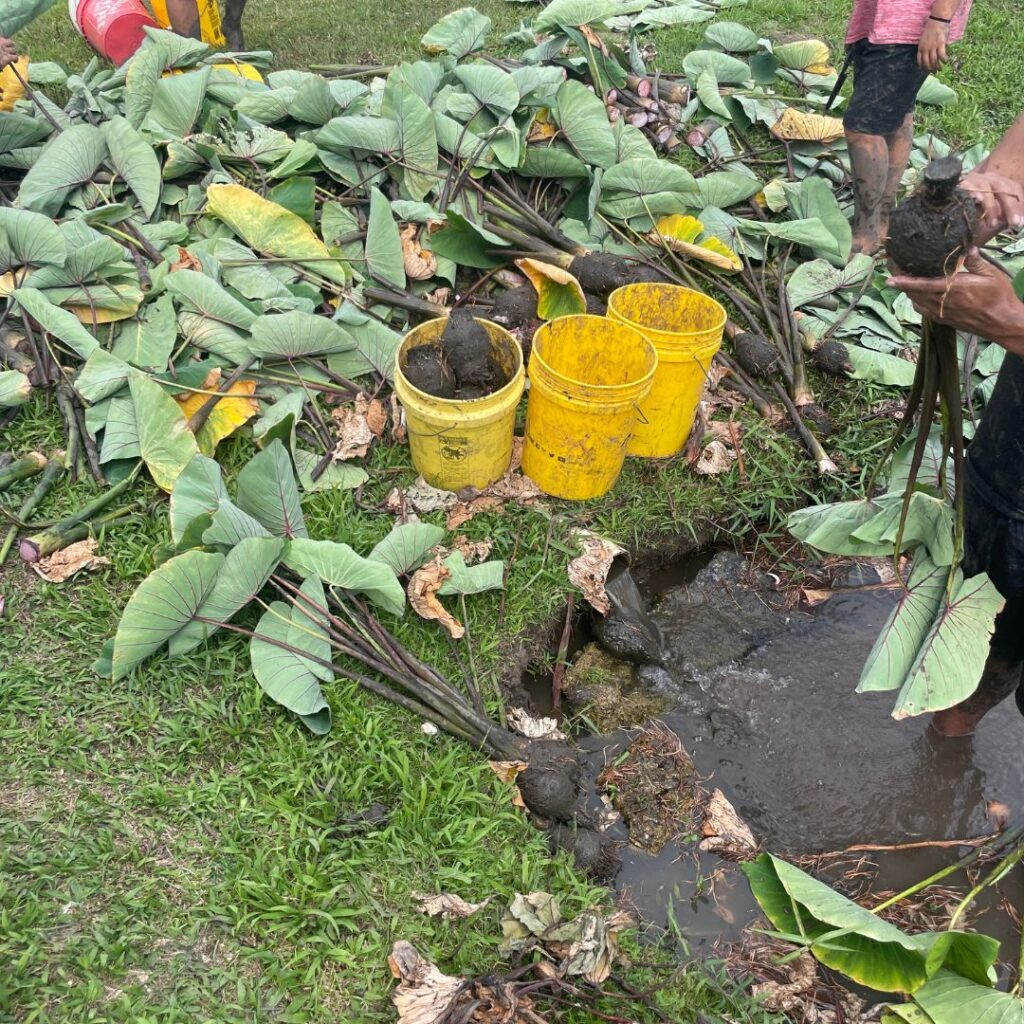
On the workday itself, volunteers will undertake various tasks that contribute to the upkeep and productivity of the loʻi, or taro fields. These activities range from weeding around the crops and planting new saplings to harvesting mature plants as I did. Each task is vital to the ongoing growth and success of the loʻi, enabling the tradition of taro farming to flourish at Kākoʻo ʻŌiwi.
Unique Aspects Of This Volunteer Program
Kākoʻo ʻŌiwi is unique for several reasons. The first thing you might notice is the size of their land. The assortment of Lo’i provides an incredible chance for people visiting the island to see and take part in a tradition that has been alive for centuries. Taro farming isn’t just a way to grow food; it’s a part of Hawaii’s history, a living link to the past.
Secondly, Kākoʻo ʻŌiwi is very well-organized. Despite the size of the fields and the many different tasks to be done, everything flows smoothly. When you show up, you’re given clear instructions, and everything is arranged so that you can make the best use of your time there.
Final Thoughts
Finally, I would highly recommend this opportunity to anyone who is looking to try something new and get a bit muddy along the way. This is hard work but is a much-needed change from the usual weeding and grass removal. Overall, a very fun choice and a great experience.

